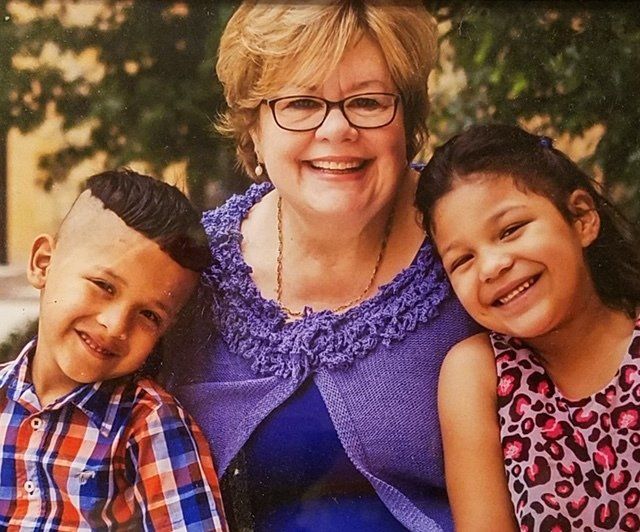Advocate Spotlight: Peggy Peterson
November Advocate Interview

1. How long have you been an Advocate and when did you realize you wanted to become one?
I have been an Advocate for 6 years. I retired from North East ISD after more than 30 years as an educator and soon realized that something was missing in my life. Keeping my eyes open for ways to become involved in San Antonio I kept encountering the CASA banner hanging over varied streets. Honestly, it seemed to be stalking me! I checked out the website, but something held me back. Then one day as I was facilitating a parent education session, I met a woman who was raising her grandchild. As we chatted, she told me of her long time association with CASA. That was it! I drove
over to CASA that day and followed up with my application. I cherish the opportunity to be associated with this amazing program and to be a small part of the big work being done everyday for the children of San Antonio.
2. What is the most rewarding aspect of being an Advocate?
The KIDS! Having the opportunity to know, love, and be present in the lives of some very special children is the most rewarding aspect of being an Advocate. Each child and case is unique. To be the voice of the child not only in court, but also in many aspects of their life is a daunting task, but it is a role that can fill your heart with love!
3. If you could offer words of encouragement to your fellow and incoming Advocates, what would they be?
Never give up! Find an opportunity in every stumble! Build positive relationships with your supervisor because they are wise mentors, with all adults involved in the case to ensure good communication, and especially with your children. I have a rule to never say a case is easy or coming quickly to an end because surely there will be a bump in the road. It’s important to take those bumps in stride, to regroup and plan next steps with all the helpers you have acquired along the way. Most importantly, always keep your CASA child at the center of all decisions and actions. This journey, while frustrating at times, can be one of the most rewarding things you will ever do.

In November 2025, Child Protective Services received a referral involving two sisters, ages 13 and 14, who were found caring for themselves. Following the death of their father, the girls experienced ongoing abuse and neglect. They were living in unsafe and unsanitary conditions, frequently left alone without adequate food, functioning plumbing, or consistent supervision, and were exposed to strangers regularly coming in and out of the home. Shortly after removal, Tameka Woolfolk was appointed as the Advocate on the case. From the very beginning, Tameka became one of the few consistent and reliable adults in the girls’ lives. The children experienced and continue to endure placement changes. These frequent transitions created ongoing instability and further complicated the girls’ ability to heal and adjust. Throughout each move, Tameka remained steadily involved, working diligently to ensure that the children’s services and support continued without interruption. She supports the girls not only emotionally, but physically as well helping pack their belongings at each move, accompanying them during school tours, and remaining readily available whenever they need support. Neither child was initially aware that they had the right to speak directly with the judge. Tameka recognized the importance of their voices being heard and with the support of the Ad Litem, helped to facilitate their presence at court, requesting that the judge meet with the girls in a breakout room, so they could personally express their wishes, all with the department, CASA and the Ad Litem by their side. In addition, this case was referred to Collaborative Family Engagement (CFE). During CASA’s ongoing exploration for family connections alongside the Department, Tameka discovered the children’s father’s obituary. Through this discovery, it was learned that the girls’ father had served in the United States Army as a combat medic during the Vietnam War and later worked for 30 years in civil service. Tameka took the initiative to request documentation, including VA records and a death certificate, to determine whether the children might be eligible for survivor benefits. The obituary also revealed that the girls are two of fourteen siblings. While many of the siblings were unable to provide support, CASA and the Department were able to establish contact with one brother. Through Tameka’s strong collaborative relationship with the Department and the Attorney Ad Litem, a thoughtful and appropriate plan was developed to allow the girls to begin visits with their brother, his wife, and their cousins. Although this story is still unfolding, both girls know one unwavering belief, that no matter what comes next, they know that Miss Tameka will continue to stand beside them every step of the way.







